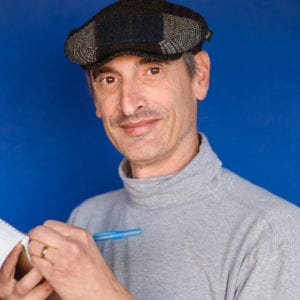Human Resources
Lee Chottiner
COP26, the just-concluded United Nations Climate Conference in Glasgow, Scotland, was hardly everything environmentalists – Jewish environmentalists in particular – had hoped for.
Leading developed nations did agree to reduce methane emissions. There were commitments to stem deforestation, pledges to reach net-zero CO2 emission s by mid-century and to double support from $20 billion to $40 billion for the mitigating efforts of smaller, less developed countries.
By the end of the conference, though, the participants did not achieve enough change to limit global temperature growth to 1.5 degrees Celsius above pre-industrial levels between 2030 and 2052 and avoid, the most catastrophic impact of climate change.
“We’ve seen progress, we’ve seen headway, we’re not stuck, we are making some movement forward,” said David Waskow, director of the World Resources Institute, an international climate initiative. “But we also know that we’re not where we need to be, and the problems are getting increasingly severe.”
Still, according to two “Elders” of Jewish sustainability – Rabbi Arthur Waskow (David’s father) and Ruth Messinger – the conference highlighted gems of wisdom that climate activists would do well to remember: Don’t despair and embrace the faith.
In a Nov. 21 virtual townhall on the fallout from COP26, hosted by Hazon, an international Jewish organization dedicated to global sustainability, Rabbi Waskow, 88, a well-known author, activist and founding director of the Shalom Center, dedicated to ecology and human rights; and Messinger, past president and CEO of the American Jewish World Service, gave voice to those gems.
Even with the earth at a red-alert crisis – out-of-control wildfires, catastrophic storms, longer-lasting droughts, rising sea levels – now is not the time to give up.
“Despair is not a strategy,” said Messinger, 81.
Indeed, converging on Glasgow were young Jewish activists from Hazon, Dayenu: A Call to Climate Action; Adamah, a fellowship for young Jews integrating organic agriculture, farm-to-table living, social justice and spiritual practice; and the Jewish Youth Climate Movement, a Gen Z-led movement combatting climate change.
Messinger, herself a former politician, also tempered hopes for legislative solutions to the crisis unless more climate-conscious leaders were elected to turn their promises into accomplishments.
“Change happens slowly,” she said, “and you can’t make the kind of radical change our youth leaders want if you only have a bare majority in Congress.”
As for the other gem, faith-based groups, including Jews at the synagogue level, must step up, taking an active role in the climate struggle, which cuts to the core of the Jewish concept tikkun olam (heal the world).
To that end, Waskow hinted at the possibility of faith-based action on climate change next spring, a spiritual time for many of the world’s religions.
“I think there is a broad willingness to act, to prepare for this spring renewal of life,” Waskow said. “That’s what spring is in the northern hemisphere, the renewal of life on a planet that can’t breathe.”
Waskow didn’t go into specifics for the action, but he named its catalyst: GreenFaith, an international coalition of the great religions, including Judaism, working for climate justice, to “generate a moral awakening to the sacredness of Earth and the dignity of all people,” according to its web site, greenfaith.org.
There was no report of a major Green Faith-supported demonstration this coming spring on its website, and the organization has not yet returned a request for comment. I will report GreenFaith’s response when it replies.
Waskow said any spring religious response must include “a major commitment by GreenFaith.”
“I think there is a real chance that we can shift from despair and apathy to a real commitment at the grassroots of all the religious communities here and in many other countries,” Waskow said. “That’s what I’m ready to spend energy on.”
(Lee Chottiner is the editor of the Jewish Louisville Community.)



